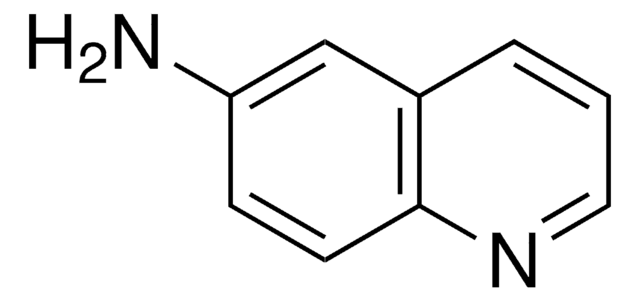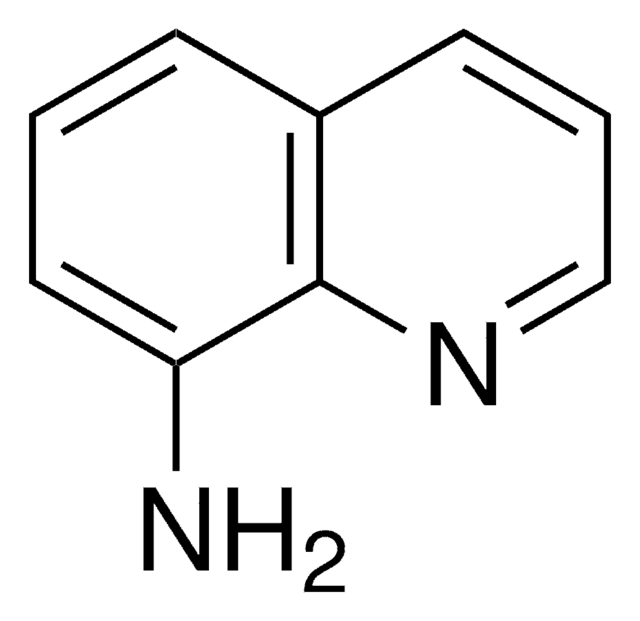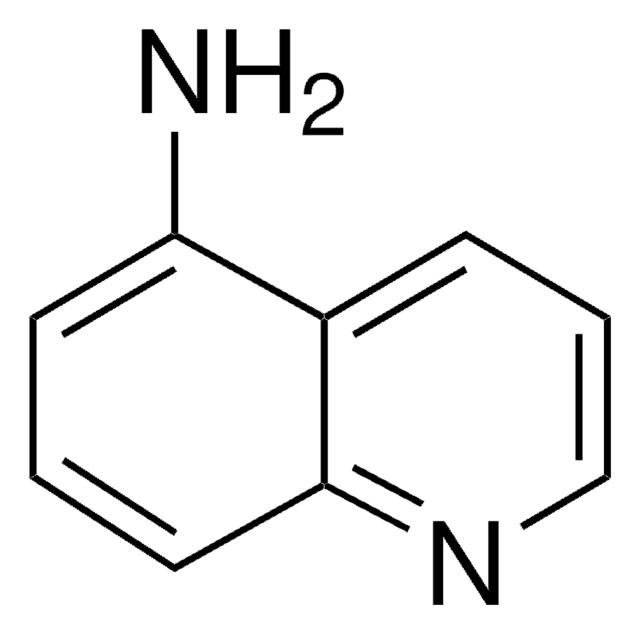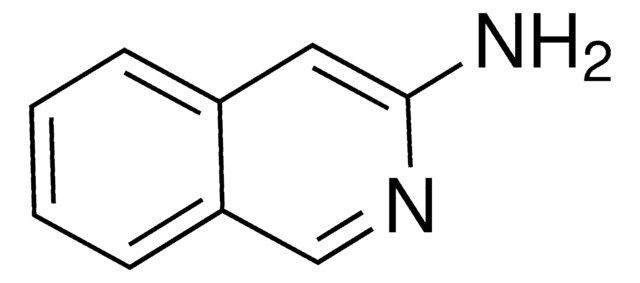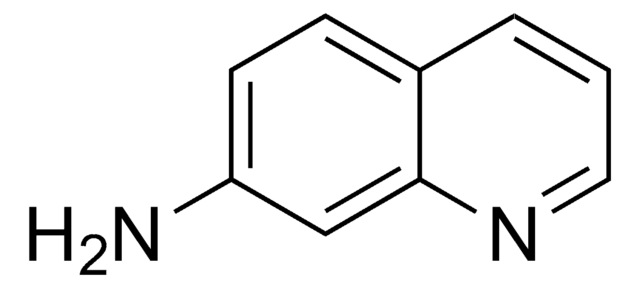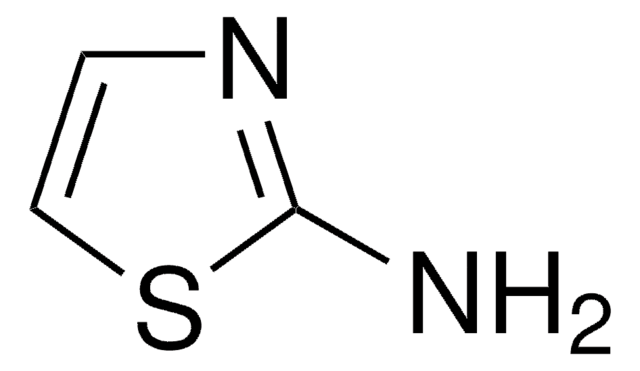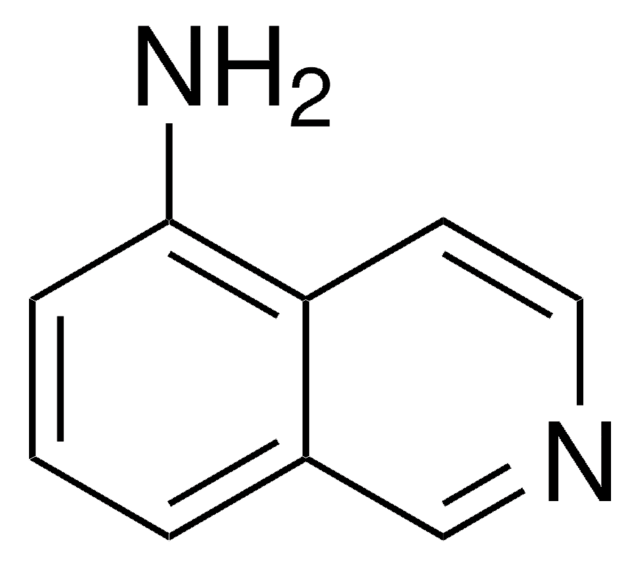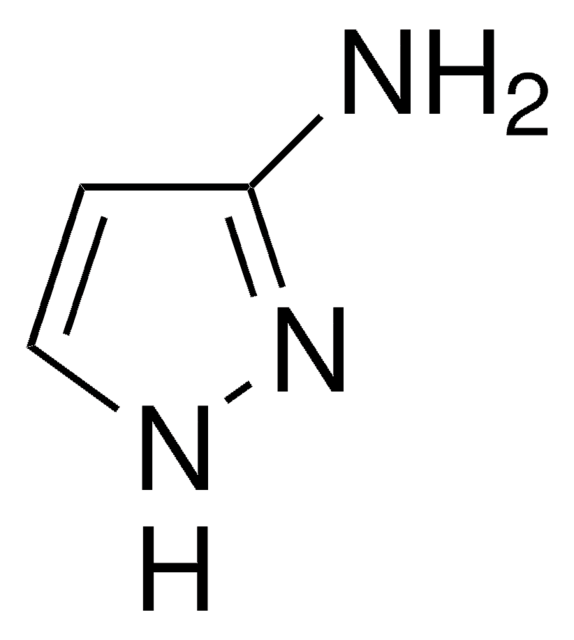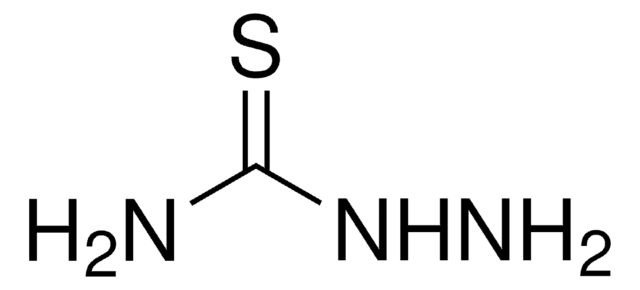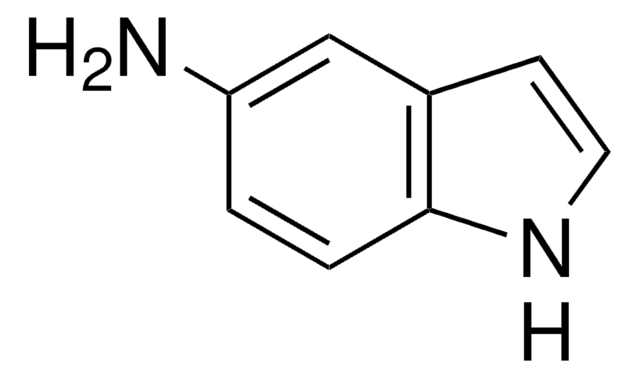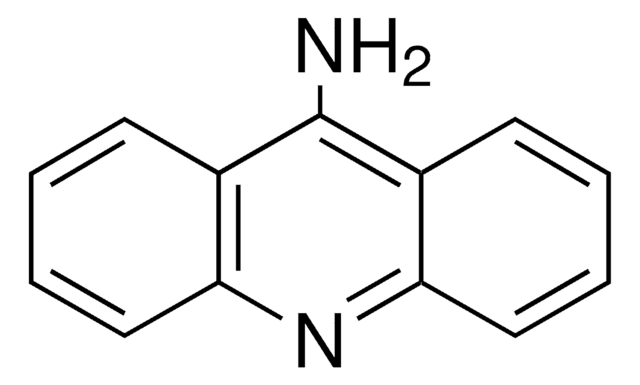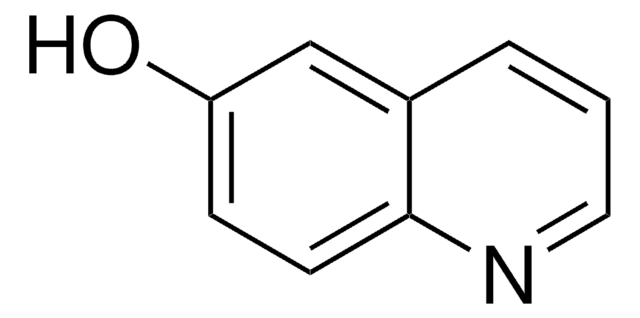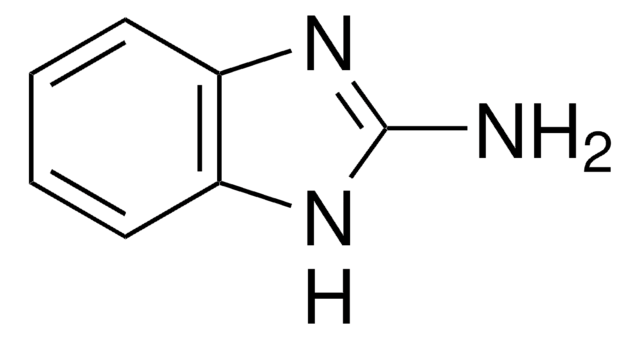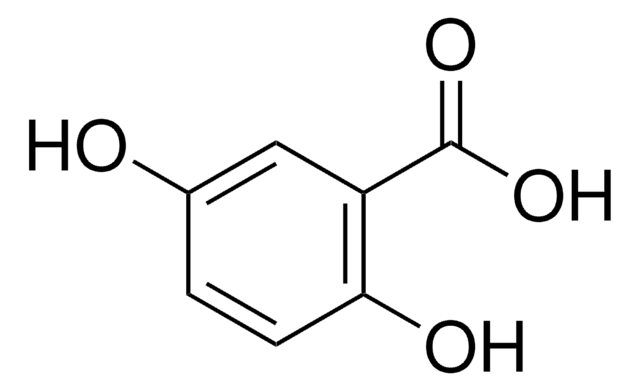232289
3-Aminoquinoline
98%
Sinónimos:
3-AQ
Iniciar sesiónpara Ver la Fijación de precios por contrato y de la organización
About This Item
Fórmula empírica (notación de Hill):
C9H8N2
Número de CAS:
Peso molecular:
144.17
Beilstein:
113317
Número CE:
Número MDL:
Código UNSPSC:
12352100
ID de la sustancia en PubChem:
NACRES:
NA.22
Productos recomendados
Nivel de calidad
Ensayo
98%
Formulario
solid
mp
91-92 °C (lit.)
cadena SMILES
Nc1cnc2ccccc2c1
InChI
1S/C9H8N2/c10-8-5-7-3-1-2-4-9(7)11-6-8/h1-6H,10H2
Clave InChI
SVNCRRZKBNSMIV-UHFFFAOYSA-N
¿Está buscando productos similares? Visita Guía de comparación de productos
Categorías relacionadas
Aplicación
3-Aminoquinoline was used:
- in liquid matrix for matrix-assisted laser desorption/ionization mass spectrometry (MALDI-MS) for glycopeptides, carbohydrates and phosphopeptides
- in liquid matrix during novel glycan-labeling method for quantitative profiling of N-glycan by MALDI-MS analysis
- as derivatizing reagent for MALDI-MS analysis of oligosachharides
Palabra de señalización
Warning
Frases de peligro
Consejos de prudencia
Clasificaciones de peligro
Eye Irrit. 2 - Skin Irrit. 2 - STOT SE 3
Órganos de actuación
Respiratory system
Código de clase de almacenamiento
11 - Combustible Solids
Clase de riesgo para el agua (WGK)
WGK 3
Equipo de protección personal
dust mask type N95 (US), Eyeshields, Gloves
Elija entre una de las versiones más recientes:
¿Ya tiene este producto?
Encuentre la documentación para los productos que ha comprado recientemente en la Biblioteca de documentos.
Los clientes también vieron
Natsuhiko Sugimura et al.
Journal of the American Society for Mass Spectrometry, 30(8), 1503-1511 (2019-05-19)
A novel ionization/sampling method termed triboionization was developed. Triboionization is an ionization method that only uses cohesive substances, such as food wrap or sticky tape, and does not require an electrode, electric power supply, heat source, light source, radiation, or
Yuko Fukuyama et al.
Analytical chemistry, 86(4), 1937-1942 (2014-02-07)
Glycosylation and phosphorylation are important post-translational modifications in biological processes and biomarker research. The difficulty in analyzing these modifications is mainly their low abundance and dissociation of labile regions such as sialic acids or phosphate groups. One solution in matrix-assisted
Clara Granzotto et al.
Analytical chemistry, 89(5), 3059-3068 (2017-02-15)
This paper reports an improved method for the identification of Acacia gum in cultural heritage samples using matrix assisted laser desorption ionization-time-of-flight mass spectrometry (MALDI-TOF MS) after enzymatic digestion of the polysaccharide component. The analytical strategy was optimized using a
Yuzo Yamazaki et al.
Journal of the American Society for Mass Spectrometry, 31(6), 1180-1188 (2020-04-17)
Polyrotaxane (PR) is a necklace-like supramolecule composed of cyclic components, such as cyclodextrin (CD), and a threading polymer capped with bulky end groups. PR exhibits peculiar mechanical properties attributed to the intermolecular cross-links with CD. Various CD molecules threaded on
Qiwei Zhang et al.
Mass spectrometry reviews, 37(5), 652-680 (2017-12-12)
Sialic acids are a family of structurally unique and negatively charged nine-carbon sugars, normally found at the terminal positions of glycan chains on glycoproteins and glycolipids. The glycosylation of proteins is a universal post-translational modification in eukaryotic species and regulates
Nuestro equipo de científicos tiene experiencia en todas las áreas de investigación: Ciencias de la vida, Ciencia de los materiales, Síntesis química, Cromatografía, Analítica y muchas otras.
Póngase en contacto con el Servicio técnico